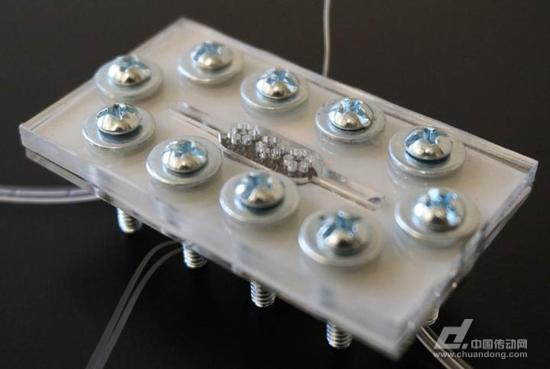
A research team composed of researchers from Binghamton University and the State University of New York has developed a new type of biological solar cell. According to Seokheun Choi, the head of the research, the battery will be used to power the chips of medical diagnostic equipment.
Such diagnostic devices require an independent source of clean energy as an energy source, and miniaturized bio-based solar cells (abbreviated as micro-BSCs) are a very attractive option. Light and microbes in biological solar cells are the key to power generation, and the microbes can self-assemble and self-sustain.
Choi explained in a paper published in the “Labor Lab†magazine that the potential of bio-solar cells has not yet been tapped because the current density of micro-BSCs that have been created is still at nanowatts/cm 2 The range cannot meet the needs of microfluidic devices and they can only last for several hours.
Choi's team designed a new structure for their solar cells and created a new bio-solar battery system that has output current density that exceeds all current micro-BSC systems, with a maximum output of 43.8 microwatts/square. The centimeter, more notably its output during the day is 18.6 microwatts/cm2, the nighttime output is 11.3 microwatts/square centimeter, and can work continuously for about 20 days.
This bio-solar cell uses a cyanobacteria, a unicellular plant that has survived the Earth for 2.5 billion years. This organism lives in fresh water. It can produce energy through photosynthesis during the day and at night through the degradation of glucose stored by biological enzymes. The cyanobacteria tend to grow into biofilms. They can spontaneously organize into groups. This biofilm is sometimes very annoying.
Choi's team cultivated this biofilm on carbon fiber cloth, and the conductive material applied to the fabric could act as an anode for solar cells. Choi and his students used a breathable and transparent silicone rubber film as a battery coat. The bio-solar cell they built is only 90 microliters and does not require any extra fuel.
Choi declared: "The advent of this bio-based solar cell will enable bio-energy conversion technology to break through the limitations of the concept of research, and the advancement of this technology means that it can not only be applied to the energy supply of diagnostic equipment, but also in limited resources The environment or remote areas achieve independent work and self-sustainment."
RAM/RFM electric heating capacitors
RAM/RFM Electric Heating Capacitors
Electric Heating Capacitor,Film Heating Capacitor,Electric Capacitor Bank,Induction Heating Capacitors
YANGZHOU POSITIONING TECH CO., LTD. , https://www.cndingweitech.com